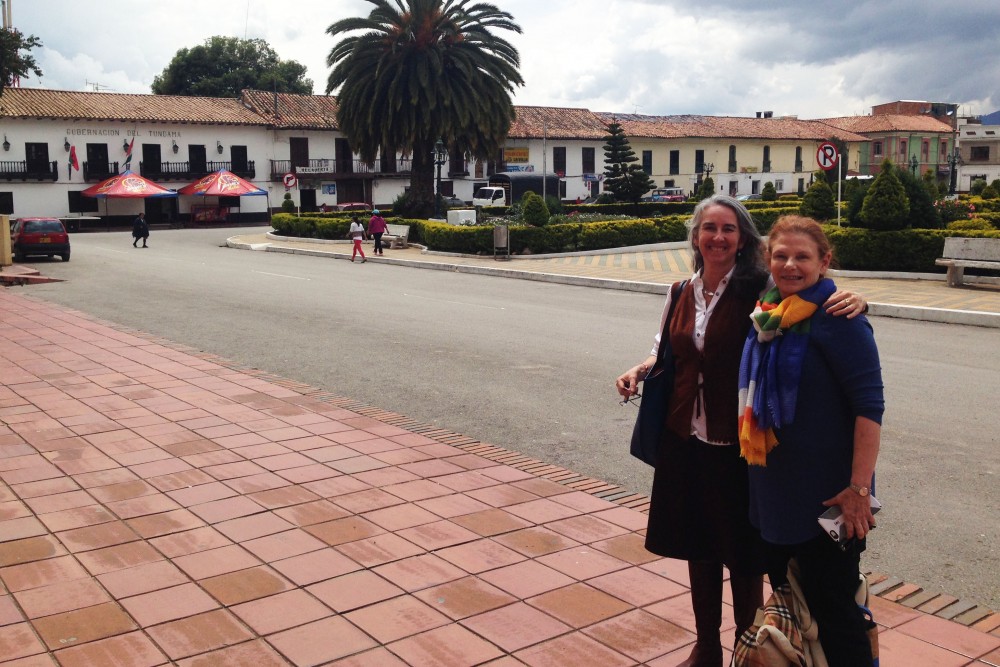University of Minnesota Humphrey School of Public Affairs researchers are working to impact legislation to prevent violence against women in Colombia.
After years of research and field work, associate professor Greta Friedemann-Sánchez and former University masters student Peggy Grieve presented to the United Nations in 2018. They are now working to publish their policy report and are communicating with members of the Colombian government about their findings and suggestions for change. Research included in the project focuses on intimate partner violence, a specific type of domestic violence.
Jennifer Prestholdt, deputy director of the nonprofit organization The Advocates for Human Rights, explained that Colombia is susceptible to higher rates of this kind of violence because it has suffered from ongoing violent conflict.
By doing a literary review and conducting interviews throughout Colombia, the researchers found that family commissioners — who are the individuals tasked with issuing orders of protection for victims of violence — are often overworked and sometimes lack adequate funding.
Family commissioners fall under the local executive branch of government, meaning there is no national oversight from the Colombian Ministry of Justice and Law that helps them interpret law, Friedemann-Sánchez said.
“Each family commissioner reinvents the wheel,” Friedemann-Sánchez said.
Friedemann-Sánchez and Grieve are now in dialogue with the Ministry of Justice and Law and a group of representatives from different government offices in Colombia.
They are communicating with these entities as a new bill is being issued, and are working with a publisher to get their policy report out to the Colombian people in an accessible way.
While Colombia has good laws about gender-based violence, Friedemann-Sánchez said, the implementation is where the country falls short.
“If Colombia has such good laws, why does the prevalence rate [of intimate partner violence] continue to increase?” she said.
This question guided their research when they began the initial stages back in 2014.
Funding for their work came from the Human Rights Initiative, which awarded them a grant in 2017, Friedemann-Sánchez said.
After conducting their research and field work in Colombia, the pair began to work closely with The Advocates For Human Rights.
Through this collaboration, they were able to present their research findings to the UN and CEDAW, the committee of independent experts which oversees the implementation of the Convention on the Elimination of All Forms of Discrimination Against Women, an international treaty adopted by the UN.
Each country that has adopted the CEDAW treaty is reviewed by the committee every four to five years, Friedemann-Sánchez said, and Colombia was up for review this year.
The Advocates have special consultative status at the UN, allowing them to present as a nongovernmental organization, or NGO.
Governments can say they have good laws on violence against women, Prestholdt said, but it’s up to NGOs and people like Grieve and Friedemann-Sánchez to highlight the problems with the actual implementation of laws and hold governments accountable.
Two of Grieve and Friedemann-Sánchez’s recommendations to the committee were slotted as priorities for Colombia to focus on for the next two years. This a rare advocacy accomplishment, Prestholdt said.
“The really exciting thing about this was that they were able to … take that academic research … and then use it for a very practical and immediate impact, which I don’t think happens very often with academic research,” she said. “So we’re excited to see how the government responds.”
Grieve said they saw the success with the committee as a chance to get more information out to Colombia.
“We were delighted with the success, but then we also had the sense that it was an opportunity for more work to take place,” Grieve said.
Friedemann-Sánchez said the Colombian government is hoping to have the bill ready next month, as Nov. 25 is the International Day for the Elimination of Violence Against Women.
While the pair is not closely involved with the legislative timeline, Friedemann-Sánchez said, she and Grieve will be back in Colombia to continue their work with the government as soon as they are invited for further discussion and presentations.








